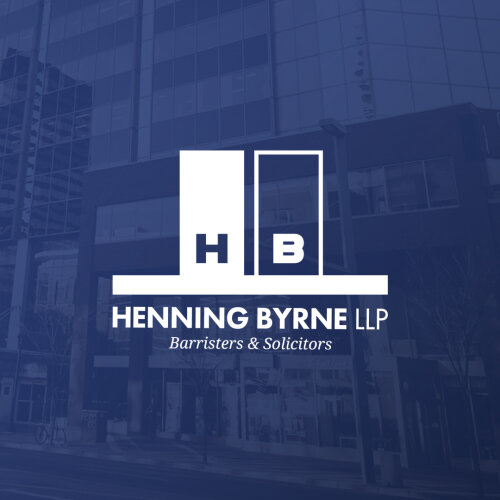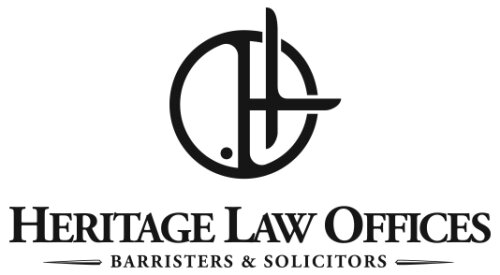Best Constitutional Law Lawyers in Edmonton
Share your needs with us, get contacted by law firms.
Free. Takes 2 min.
List of the best lawyers in Edmonton, Canada
About Constitutional Law in Edmonton, Canada:
Constitutional Law in Edmonton, Canada refers to the body of law that outlines the fundamental principles and structures of government, as well as the rights and freedoms of individuals. The Canadian Constitution Act of 1867 established the framework for Canada's federal system of government and the division of powers between the federal and provincial governments. The Canadian Charter of Rights and Freedoms, which was enacted in 1982, guarantees certain fundamental rights and freedoms to all Canadians.
Why You May Need a Lawyer:
There are several situations where you may require legal help in Constitutional Law in Edmonton, Canada, such as:
- Challenges to the constitutionality of laws or government actions
- Violation of your Charter rights or freedoms
- Disputes related to federalism or the division of powers
Local Laws Overview:
In Edmonton, Canada, Constitutional Law is guided by the Canadian Constitution Act of 1867 and the Canadian Charter of Rights and Freedoms. These laws protect the rights and freedoms of individuals, outline the powers of the federal and provincial governments, and establish the legal framework for the governance of Canada.
Frequently Asked Questions:
1. What is the Canadian Charter of Rights and Freedoms?
The Canadian Charter of Rights and Freedoms is a constitutional document that guarantees certain fundamental rights and freedoms to all Canadians, such as freedom of expression, freedom of assembly, and the right to a fair trial.
2. Can I challenge the constitutionality of a law in Edmonton, Canada?
Yes, you can challenge the constitutionality of a law in Edmonton, Canada if you believe it violates the Canadian Constitution Act of 1867 or the Canadian Charter of Rights and Freedoms.
3. How can a lawyer help me with Constitutional Law issues?
A lawyer specializing in Constitutional Law can provide legal advice, represent you in court, and help you navigate complex legal issues related to the Canadian Constitution and the Charter of Rights and Freedoms.
4. Can the government infringe on my Charter rights?
The government can infringe on your Charter rights in certain circumstances, but any infringement must be justified according to the principles of fundamental justice.
5. What is the division of powers between the federal and provincial governments in Canada?
The Canadian Constitution Act of 1867 outlines the division of powers between the federal and provincial governments, with certain powers reserved exclusively for each level of government.
6. How do I file a Charter challenge in Edmonton, Canada?
To file a Charter challenge in Edmonton, Canada, you will need to work with a lawyer who specializes in Constitutional Law to prepare and present your case in court.
7. Are there any limitations on Charter rights in Canada?
Charter rights in Canada are not absolute and can be limited in certain circumstances, such as when a limitation is demonstrably justified in a free and democratic society.
8. Can I seek compensation for a violation of my Charter rights?
If your Charter rights have been violated, you may be able to seek compensation through a legal remedy such as a Charter challenge or a civil lawsuit.
9. What is the role of the Supreme Court of Canada in Constitutional Law matters?
The Supreme Court of Canada is the highest court in the country and has the authority to interpret and apply the Canadian Constitution and the Charter of Rights and Freedoms in cases brought before it.
10. How can I stay informed about changes in Constitutional Law in Edmonton, Canada?
You can stay informed about changes in Constitutional Law in Edmonton, Canada by following legal news sources, attending legal seminars or conferences, and consulting with a lawyer specializing in Constitutional Law.
Additional Resources:
For more information on Constitutional Law in Edmonton, Canada, you can visit the website of the Alberta Courts or the Alberta Legal Information Society. These resources provide valuable information on legal rights, court procedures, and legal services available in the province.
Next Steps:
If you require legal assistance in Constitutional Law in Edmonton, Canada, your first step should be to consult with a lawyer who specializes in this area of law. They can provide you with expert advice, represent you in court proceedings, and help you navigate the complexities of Constitutional Law in Canada.
Lawzana helps you find the best lawyers and law firms in Edmonton through a curated and pre-screened list of qualified legal professionals. Our platform offers rankings and detailed profiles of attorneys and law firms, allowing you to compare based on practice areas, including Constitutional Law, experience, and client feedback.
Each profile includes a description of the firm's areas of practice, client reviews, team members and partners, year of establishment, spoken languages, office locations, contact information, social media presence, and any published articles or resources. Most firms on our platform speak English and are experienced in both local and international legal matters.
Get a quote from top-rated law firms in Edmonton, Canada — quickly, securely, and without unnecessary hassle.
Disclaimer:
The information provided on this page is for general informational purposes only and does not constitute legal advice. While we strive to ensure the accuracy and relevance of the content, legal information may change over time, and interpretations of the law can vary. You should always consult with a qualified legal professional for advice specific to your situation.
We disclaim all liability for actions taken or not taken based on the content of this page. If you believe any information is incorrect or outdated, please contact us, and we will review and update it where appropriate.









